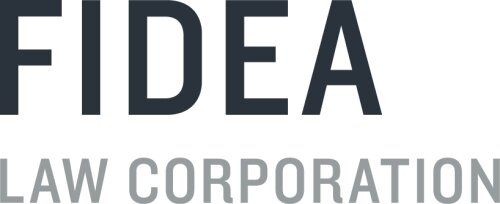Best Office Solutions Lawyers in California
Share your needs with us, get contacted by law firms.
Free. Takes 2 min.
Or refine your search by selecting a city:
List of the best lawyers in California, United States
About Office Solutions Law in California, United States
Office Solutions in California covers the legal aspects related to office leasing, setup, facilities management, workplace compliance, technology agreements, and related commercial services. The field primarily pertains to businesses seeking to establish or manage their office spaces, often involving lease negotiations, service contracts, regulatory compliance, and sometimes real estate acquisition. Legal guidance ensures that businesses operate within the framework of California law while optimizing their office environments for productivity and safety.
Why You May Need a Lawyer
Businesses and individuals may require legal assistance in Office Solutions for several reasons. Common situations include:
- Negotiating and drafting office lease agreements to ensure favorable terms and compliance with state laws
- Resolving disputes with landlords or service providers
- Understanding and complying with safety and accessibility regulations under California and federal law
- Entering into contracts with vendors for office supplies, equipment, or technology solutions
- Handling office relocations, improvements, or expansion projects
- Securing intellectual property rights for office technology and software
- Dealing with zoning laws and permitting requirements
- Ensuring proper documentation when acquiring or disposing of office assets
- Responding to employee concerns related to the office environment
- Addressing data privacy and security issues in workspace technology deployments
Local Laws Overview
California has detailed laws and regulations affecting Office Solutions, including but not limited to:
- Commercial Leasing Laws - California Civil Code sections regulate both landlord and tenant rights and obligations, security deposits, lease termination, and notice requirements.
- Workplace Safety - The California Occupational Safety and Health Administration (Cal/OSHA) sets strict requirements for office safety, ergonomics, and reporting workplace injuries.
- Accessibility - Laws such as the California Building Code and the federal Americans with Disabilities Act (ADA) require office spaces to be accessible to all employees and visitors.
- Data Privacy and Cybersecurity - The California Consumer Privacy Act (CCPA) and other state data laws may impact technology solutions used in offices, requiring certain measures to protect personal information.
- Environmental Compliance - State laws may affect office waste management, energy use, and hazardous materials handling.
- Zoning and Land Use - Local ordinances determine where and how offices can be located or expanded, with permitting required for modifications.
Frequently Asked Questions
What should I look for in an office lease agreement in California?
You should check lease duration, rent terms, maintenance responsibilities, renewal options, subleasing allowances, termination clauses, and compliance with state laws. Seek legal review before signing to avoid unfavorable terms.
Are there regulations for office ergonomics in California?
Yes, Cal/OSHA requires employers to provide safe office environments, which includes addressing risks from poor ergonomics. This can cover desk setups, seating, and workflows.
Do offices in California need to be ADA compliant?
Yes, both state and federal law require office spaces to be accessible to people with disabilities. This may involve ramps, accessible restrooms, and signage.
How can I handle a dispute with my office landlord?
Start by reviewing your lease and any correspondence. Attempt to resolve the issue directly, but consult a lawyer if disagreements persist or involve significant sums or potential eviction.
What is required for data privacy in office technology?
The CCPA and related laws specify how businesses must handle, store, and disclose personal information. Offices must secure networks and have policies for data access and retention.
Is subleasing allowed for my office in California?
Subleasing is only permitted if it is allowed by your lease agreement or with landlord approval. Consult the contract terms and obtain written consent if needed.
Can an office be located in any zoning district?
No, local laws restrict office placements to specific zones. Building permits and sometimes public hearings are required for new or expanding office locations.
Do I need permits for office renovations?
Most renovations, especially those affecting structure, accessibility, or utilities, require permits from your local building authority. Fines and legal problems can arise if work is done without proper permits.
Who is responsible for maintaining office safety?
Employers are legally responsible for ensuring a safe working environment. This includes complying with Cal/OSHA rules and addressing risks as they arise.
What happens if my office lease is terminated early?
Consequences depend on the lease terms and reason for termination. Early termination may trigger fees or damages, so legal advice is important for both landlords and tenants.
Additional Resources
If you need further information or assistance, consider reaching out to:
- California Department of Consumer Affairs - for general business and leasing information
- Cal/OSHA - for workplace safety rules and regulations
- California Department of Fair Employment and Housing - for accessibility and discrimination issues
- Your local city or county building department - for zoning and permitting questions
- California Secretary of State - business registrations and compliance
- State Bar of California - for finding qualified attorneys
- Better Business Bureau (BBB) - for vendor and service provider backgrounds
Next Steps
If you believe you need legal assistance regarding Office Solutions in California:
- Document all relevant information, including agreements, correspondence, and concerns
- Identify the specific area in question such as leasing, contracts, compliance, or safety
- Reach out to a licensed California attorney who specializes in real estate or business law
- Ask for an initial consultation to assess your situation and potential risks
- Follow legal advice and keep communication channels transparent with all involved parties
Lawzana helps you find the best lawyers and law firms in California through a curated and pre-screened list of qualified legal professionals. Our platform offers rankings and detailed profiles of attorneys and law firms, allowing you to compare based on practice areas, including Office Solutions, experience, and client feedback.
Each profile includes a description of the firm's areas of practice, client reviews, team members and partners, year of establishment, spoken languages, office locations, contact information, social media presence, and any published articles or resources. Most firms on our platform speak English and are experienced in both local and international legal matters.
Get a quote from top-rated law firms in California, United States — quickly, securely, and without unnecessary hassle.
Disclaimer:
The information provided on this page is for general informational purposes only and does not constitute legal advice. While we strive to ensure the accuracy and relevance of the content, legal information may change over time, and interpretations of the law can vary. You should always consult with a qualified legal professional for advice specific to your situation.
We disclaim all liability for actions taken or not taken based on the content of this page. If you believe any information is incorrect or outdated, please contact us, and we will review and update it where appropriate.
Browse office solutions law firms by city in California
Refine your search by selecting a city.














